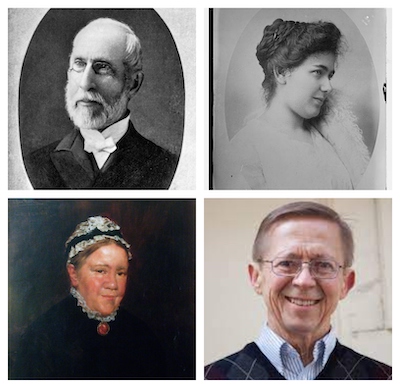by Jarrett Hoffman

•Firelands Symphony Chorale auditions
•Season announcements from Apollo’s Fire and Cleveland Composers Guild
•Charlotte Symphony new contract: a raise, an extended season, and audition adjustments to broaden diversity
•Almanac: the “Schwencke” measure, a Civil War song, a noted improviser, the Musicians Emergency Fund co-founder, and more
NEWS BRIEFS:
The Firelands Symphony Orchestra Chorale is holding auditions September 26-27 at Huron United Methodist Church. To register, email jody@firelandssymphony.com or call 419-621-4800. More information on the ensemble’s Facebook page.
Apollo’s Fire has announced its upcoming season, “Sparks of Joy in a Fragmented World.” It includes 26 concerts in Cleveland and Akron, a series in Chicago, tours to the U.K., Germany, New York City, and San Francisco, and four programs that will be available virtually. Subscriptions and single tickets are available. More info on their website.
Also on the books for 2022-23: Cleveland Composers Guild’s five-concert season “Celebrating the Year of the Voice.” It includes art song, vocal chamber music, opera scenes, collaborations with Cleveland Chamber Choir and Cleveland Chamber Symphony, and the 31st annual “Creativity: Learning Through Experience.” Find out more here.
INTERESTING READ:
A new contract for the musicians of the Charlotte Symphony includes a 5% raise over the next two years, a one-week extension of the ensemble’s season, and an effort to broaden diversity: the pre-screening of auditions will be eliminated, and applicants who participate in the Sphinx Orchestral Partners Auditions in Detroit will automatically advance beyond the first round. Read more in Catherine Muccigrosso’s article for The Charlotte Observer.
TODAY’S ALMANAC:
We start on August 30, 1767, when composer, pianist, and music editor Christian Friedrich Gottlieb Schwencke was born in Wachenhausen, in the Hartz mountains of Germany. His name lives on as an adjective: he was an early publisher of J.S. Bach’s The Well-Tempered Clavier, and his manuscript of that work’s first Prelude in C major contains the so-called “Schwencke measure,” which might in fact be of his authorship rather than Bach’s — read more in this blog entry from G. Henle Verlag.
Moving to the 19th century, George Frederick Root was born on this date in 1820 in Sheffield, Massachusetts. A pioneer in American music education, Root also found fame during the Civil War through his morale-boosting patriotic songs like Battle Cry of Freedom, which advocated for abolitionism and preservation of the Union. That song was so popular that it was adapted for use by the Confederacy, was used in several political campaigns, and has been included in modern media such as the film Lincoln — the source of the recording linked above.
Born on August 30, 1887 in Budapest, pianist Yolanda Mero moved to the U.S. in 1900. On these shores, she played concertos under Mahler and Stokowski, created several piano rolls, co-founded the New Opera company (becoming the world’s only female impresario at the time), railed against the presence of soap operas and ads on the radio (founding and chairing the Women’s National Radio Committee), and co-founded the Musicians Emergency Fund to support destitute musicians. She plays Liszt’s Hungarian Rhapsody No. 4 here.
Pianist and composer Kate Fanny Loder, who died on this date in 1904 in Headley, Surrey, England, became the first female professor of harmony at the Royal Academy of Music at age 18. After marriage, her career was held back at the insistence of her husband, but by the end of her life she had put together an oeuvre highlighted by several short works for piano, including the Voyage Joyeux in A, heard here in an all-Loder album played by Ian Hobson.
Improvisational skills brought special renown to organist and composer Piet Kee, who was born on this date in 1927 in Zaandam, Netherlands, and who won first prize at the Haarlem International Improvisation Competition three years in a row, 1953-1955. Watch footage of a short improvisation of his at the 1738 Christian Müller organ in St. Bavo in Haarlem here.
Closing with a figure who has roots in Northeast Ohio, composer David Maslanka was born on August 30, 1943 in New Bedford, Massachusetts, and graduated from Oberlin Conservatory in 1965. A three-time winner of the National Endowment for the Arts Composer Award, his writing lies in many genres — chamber music, choral, orchestral — but he is best-known for his works for wind ensemble. Among his pieces that are firmly established in the canon is the Symphony No. 4, performed here by the wind symphony of the University of Cincinnati College-Conservatory of Music, led by Kevin Michael Holzman.
Pictured above, clockwise from top-left: Root, Mero, Maslanka, Loder.


